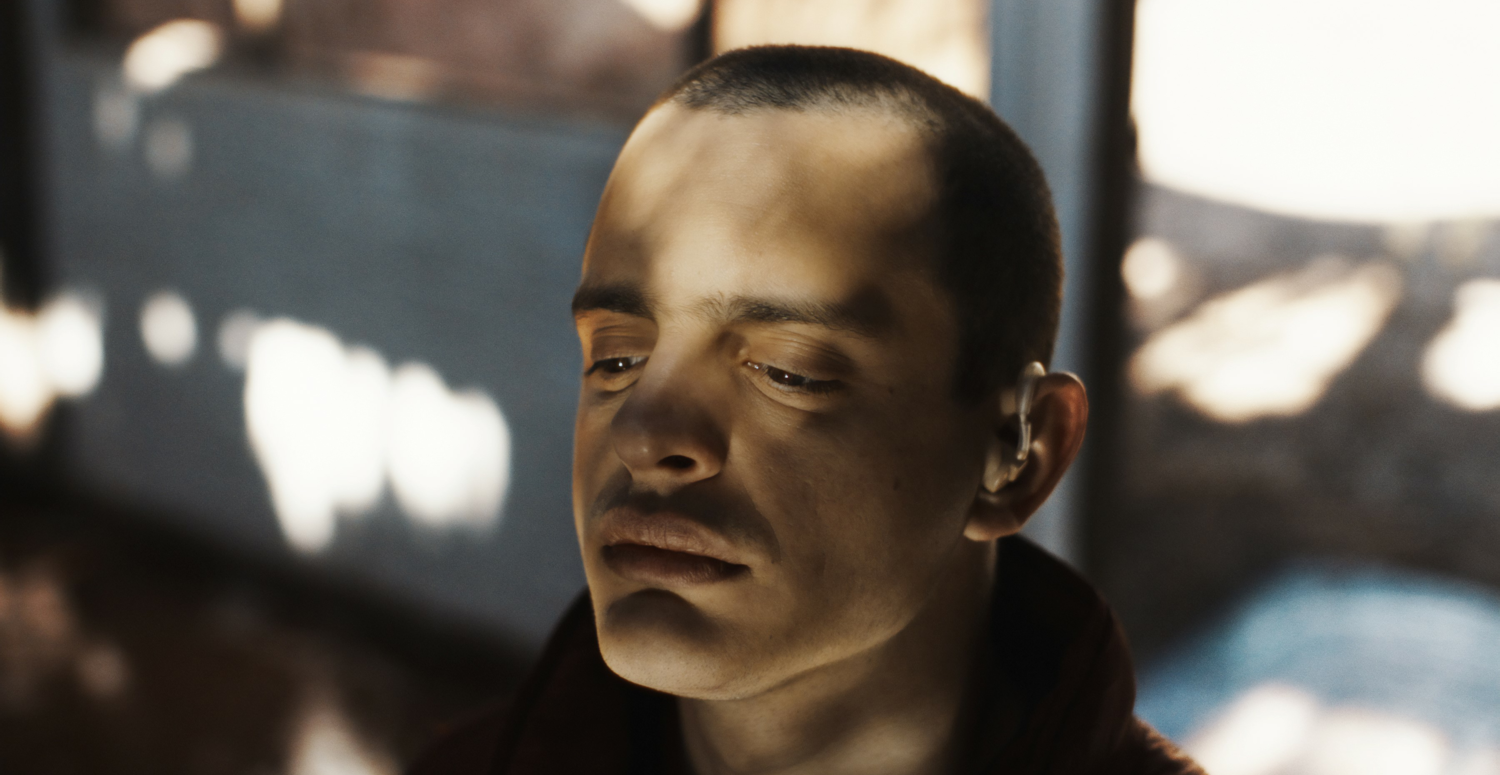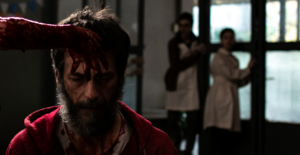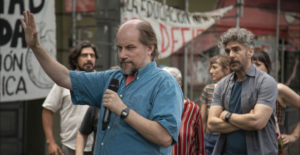Simón de la montaña
Mejor película – Lima
Mejor Actor – Lima
Mejor Actor – Santiago
Mejor ópera prima – Argentina
2024/2025

FR EN
Alors que le handicap manque cruellement de représentation au cinéma – malgré quelques avancées ces dernières années notamment en France –, c’est bien un film argentin qui ici crève l’écran, détruit nos a priori et fend nos cœurs. Premier long-métrage plusieurs fois récompensé du prometteur réalisateur Federico Luis, « Simón de la montaña » est tout simplement bouleversant.
Tourné dans la province andine de Mendoza, le film met en scène des actrices et acteurs issus du théâtre et tous devenus professionnels lors des prises – à l’exception de Lorenzo Ferro, déjà connu pour son rôle-titre dans « El Ángel ». Inspirée d’une anecdote personnelle commune au réalisateur et à l’un des acteurs, l’intrigue, bien que fictionnelle, s’appuie grandement sur la vie et les idées de l’équipe du film.
Mais de quoi parle ce film au juste ? Et bien il s’agit de l’histoire de Simón (Lorenzo Ferro), jeune homme terriblement désabusé, qui fait la rencontre de Pehuén (Pehuén Pedre) et de ses camarades dont Colo (Kiara Supini). Particularité de cette cohorte : toutes et tous vivent ou du moins se rendent quotidiennement dans un centre pour personnes en situation de handicap. Et Simón semble y trouver sa place.
Le long-métrage ne traite pas du handicap à proprement parler – cette caractéristique des personnages n’étant de fait qu’un détail parmi d’autres – mais sur l’adolescence et les difficultés de se construire une identité propre, loin des carcans familiaux et sociaux. Et c’est entre autres ce qui fait du bien dans cette histoire atypique : le handicap n’est qu’un moyen, qu’un facteur d’intégration à une communauté pour Simón, dont on ne connaît d’ailleurs jamais les véritables intentions. Le récit laisse en effet libre cours à l’interprétation quant aux raisons de ce Simón singulier et particulièrement touchant parce que justement il agit de façon singulière. Et à travers ce regard singulier, invalides comme valides font partie d’une même humanité, parfois laide, mais souvent belle de par sa diversité et la multiplicité des sentiments qu’elle crée hors de et face à cette œuvre cinématographique que nous osons qualifier de formidable et d’essentielle.
Axel Chevalier
At a time when disability is sorely lacking in the cinema – despite some progress in recent years, particularly in France – it’s an Argentinian film that shatters the screen, destroying our preconceptions and breaking our hearts. “Simon of the Mountain” is the multi-award-winning directorial debut of the promising Federico Luis, and is utterly overwhelming.
Shot in the Andean province of Mendoza, the film features actresses and actors with theater backgrounds, all of whom turned professional during the making of the film – except for Lorenzo Ferro, already known for his title role in “El Ángel”. Inspired by a personal experience shared by the director and one of the actors, the plot, though fictional, draws heavily on the lives and ideas of the film’s cast and crew.
But what exactly is it about? Well, it’s about Simón (Lorenzo Ferro), a terribly disillusioned young man, who meets Pehuén (Pehuén Pedre) and his comrades, including Colo (Kiara Supini). What’s special about this group is that they all live in, or at least visit, a center for the disabled on a daily basis. And Simón seems to fit right in.
The film is not about disability per se – this characteristic of the characters is just one of many aspects – but rather about adolescence and the difficulties of carving out an identity of their own, far from the shackles of family and society. And that’s one of the good things about this atypical story: for Simón, disability is only a means, a way of integrating into a community, and his true intentions are never revealed. In fact, the story is very much open to interpretation as to the motives of this singular Simón, who is particularly touching precisely because he acts in such a singular way. And through this singular gaze, disabled and able-bodied alike are part of the same humanity, sometimes ugly, but often beautiful in its diversity and the multiplicity of feelings it creates out of and in front of this cinematographic piece that we dare to call terrific and essential.
Axel Chevalier

